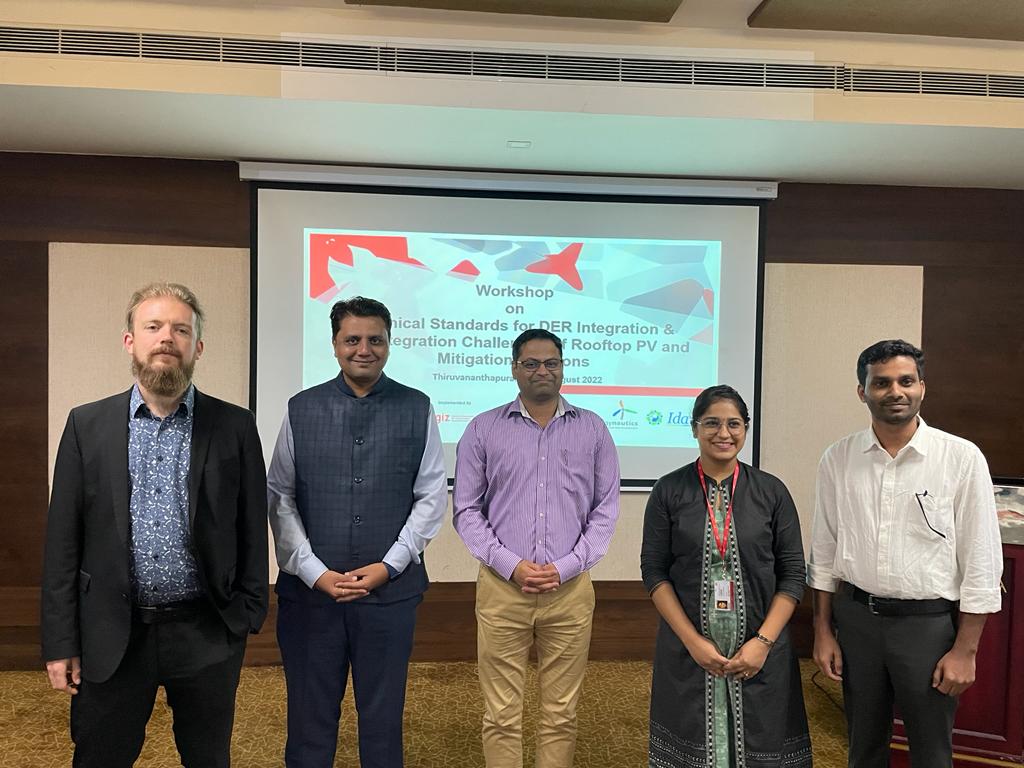Energynautics successfully completes two projects in India, providing recommendations for DER integration
Supporting DER Integration in India
Energynautics together with Idam Infrastructure have completed two projects with the goal of providing technical recommendations towards increasing Distributed Energy Resource (DER) integration in India. Three dissemination workshops were held between the 22 and 26 August 2022, in the cities of Gandhinagar, Mumbai, and Thiruvananthapuram.
The recommendations were developed in the framework of two Indo-German development cooperation projects that Deutsche Gesellschaft für Internationale Zusammenarbeit (GIZ) GmbH implements on behalf of the Federal Ministry for Economic Cooperation and Development (BMZ):
- Energy Transition with Distribution Companies: Technical Standards for DER integration international review, India’s gap analyses and way forward
- Indo-German Solar Energy Partnership: Developing Accelerated PV Grid Integration Strategy for the State of Gujarat
Both projects had the ultimate goal of contributing to India’s transition towards higher DER penetration and therefore supported the joint dissemination event.
Key stakeholders from each state participated in the dissemination event, including more than 100 representatives of the central electricity authority, distribution companies, energy development agencies, regulatory commissions, electrical inspectorates, research agencies, and EPC companies. The events provided the opportunity to collect feedback from various stakeholders on the recommendations for DER technical requirements that were provided in the projects.

GIZ, Idam and Energynautics representatives at Thiruvananthapuram
